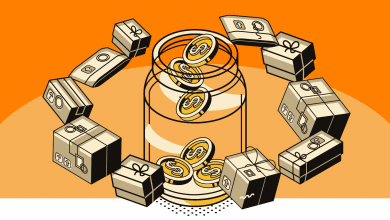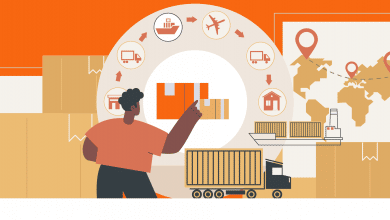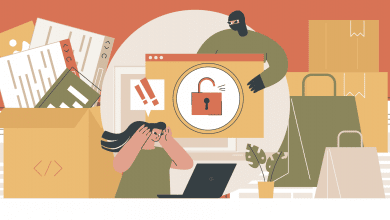Trading Company or Factory: Which Chinese Supplier Should You Use?

In China, there are two basic types of suppliers that you will encounter: trading companies and factories.
What is the difference between these two types of suppliers? In this article, I'll address the differences between these two and when you should use each.
Topics Covered
What Is a Factory?
A factory in China is exactly what you think it is: it's a place that produces or manufactures various goods and widgets. They normally have some type of machinery to produce these items, although the sophistication of that machinery can drastically vary. For example, compare a textile factory that may simply have sewing machines as their primary machinery compared to a metal forgery which has much more complex and expensive machinery.
Factories almost always specialize in a particular type of product and material. You would not expect a textile factory to also make stainless steel products as the machinery and skill set are completely different for each type of product.

Factories tend to offer lower prices compared to trading companies, and you get more control over your products as you are directly in communication with the factory in charge of making your products. However, factories have a much smaller assortment of products and higher minimum order quantities (MOQ).
Related Reading: 2020 Buying on Alibaba Guide: Price Negotiation, Payment, & Shipping
What Is a Trading Company?
A trading company does not actually produce any goods. Instead, they source a variety of products from one or more factories (often, they work with several factories). They are similar, although not identical, to what we would imagine in the west as a distributor or a wholesaler. Their big benefit is that they are able to offer a wide variety of products. In the past, before the opening up of China, trading companies were essentially the only way to import from China, but this has all changed now.

A good trading company will source difficult-to-find products from difficult-to-find factories (not all factories are on Alibaba). If they're doing their job, they will also perform some type of quality control as well. The downside of a trading company is that they typically have higher prices than factories as they take some markup over the factory, and you will have less control over the actual production of your goods.
What Are the Advantages and Disadvantages of Trading Companies and Factories?
Here's a summary of the strengths and weaknesses of each to help you decide which one is better for your business.
| Advantages | Disadvantages | |
|---|---|---|
| Factory | Lower prices More control |
Less variety of products Higher MOQ |
| Trading Company | More variety of products Lower MOQ |
Higher prices Less control |
The Difference Between Factories and Trading Companies Is a Blurred Line
An important thing to recognize with factories is that almost every factory sources some components and parts from other factories. Imagine a textile factory that produces t-shirts. This factory will likely not produce the string and the fabric for the t-shirt. Instead, they purchase these from another factory and sew them together. Especially when a product involves many types of complex parts (imagine an iPhone for example), a particular factory could be working with dozens or hundreds of other factories. Furthermore, many factories will also outsource their work to other factories during busy times.
If you're working with a factory, it's important to understand what exact components of the product that factory actually makes.
Related Listening: E276: How to Do Sourcing Right – A Guide for Veterans and Novices
How to Identify a Trading Company or a Factory
When determining if a supplier is either a factory or a trading company, you can simply ask them directly. If a supplier tells you they are a trading company, then you have a conclusive answer to your question. However, if they tell you that they are a factory, then you must dig a little bit further, specifically asking them what exact components of the product they make.

Should You Use a Factory or a Trading Company?
Neither factories nor trading companies are inherently bad or good. Although I often hear importers insisting they will only work with factories. I have worked with many trading companies during my importing life, even when I know the exact factories my trading companies work with.
A trading company will normally be more expensive than a factory, but a good trading company should add additional value through sourcing, quality inspection, customer service, etc. The problem is that some trading companies offer little additional value and essentially buy and resell products with no value added.
Related reading: How to do a Quality Control Inspection (and Why You Need One)
Working with a factory directly gives you one major advantage: you have a more direct line of communication with the factory. When a problem occurs or when you are trying to customize a product, it will be easier to communicate with the factory (opposed to a trading company which will essentially be a filter between you and the factory). Working with factories also affords you potentially the lowest prices, especially if you are ordering a reasonable quantity.
In my experience, if you are ordering at a single time a 20′ container or more of a single product, then it's usually wise to work directly with a factory. You should also try to work directly with a factory if you are customizing a product or inventing a completely new product. For importers purchasing small amounts of product and/or need a variety of products, working with a trading company is also a wise decision.
Where to Find Chinese Suppliers and Trading Companies
China is not short of companies that can provide you with the goods and services your business needs. But where do you start looking? Here are some of the places you can check out.
Trade Shows. I don't need to tell you how much better it is to actually see your potential products in person and to negotiate and clarify issues with companies face-to-face. We've been to multiple trade shows before, allowing us to build better relationships with our suppliers.
Alibaba. This is one of the most common sites importers go to for product sourcing. As long as you know how to find the right suppliers on Alibaba, it's worth checking out.
MFG. Mfg.com connects buyers and manufacturers from China. However, unlike Alibaba, MFG specializes in heavy-duty products such as machines and gears.
Global Sources. When it comes to reliability, you can rest easy with Global Sources. The site verifies companies who sign up with them and makes them pay a higher premium.
Made In China. This one's not that hard to remember: just think about what will be stamped onto your product. The site has its own list of Star Suppliers, so if they produce products for your business, you might want to start looking there.
Conclusion
Trading companies and factories both serve a purpose for importers, but it's important to know when to use each type of supplier.
Which type of supplier do you prefer to work with—trading companies or factories? Share your preference below. Also, if you have any questions about trading companies or factories, feel free to post your comments and questions below.






Can a company be a manufacturer and trading company at the same time? I asked this question because some companies write “Manufacturer, Trading Company” on their statuses. If yes, what are he implications of this?
Thank you.
Yes, many factories do a certain degree of trading.
Hi Dave, great article! I am from China and worked in both trading company and factory(trading) before, the service quality between the trading company is really different, a lot of trading companies are pretending to be a factory and have little control over the factory (quality) unless you are a big buyer. I am now working for a brand in the U.S., I never thought how incompetent a lot of trading companies are(mostly in sec-level cities): not professional, avoiding direct problems from a customer, and especially for the small trading company is not able to take full responsibility on the quality problem because of little money they have. And the pure factory (for my industry) requires big volume quantity, it is very hard for small/independent brands to enter.
Friendly reminder:
1. Don’t place an order before the prototype, if you have problems in the prototype the chances are the quality will be bad in bulk.
2. Alibaba lists are misleading a lot of time, companies are posting fake pictures and videos
If you are looking for an eyewear factory in Wenzhou, China, please stay away from Jxxxxs Exxxxxx.
Thanks for the tip!
Is there a Top 5 or list of Trading Companies you would do business with. Not looking to start Amazon FBA but just expand our product lines at our brick & mortar. Thanks.
Nope – too broad of a request. There’s millions of different products in the world :)
We started importing textiles like pants, shirts, jackets, sweaters, swimwear, bed linens etc. from China in 2020. We research the products on Alibaba and then place the order with the manufacturing Co or trading Co. We paid each supplier directly through Alibaba and they shipped by DHL.
Then we found a trading company who agreed to become an aggregator for us. We do all the research, and create a list for him. Let’s say 15 to 20 different products from different suppliers.
We make one payment to the aggregator, he buys the products from the list we provide him, he puts them in larger boxes and then using a freight forwarder he ships them to us by DHL. Saves us on shipping one package at a time.
Our orders are not huge. $5,000 to $10,000.
I still don’t understand how the trader/aggregator makes money. I asked him and he said he makes money from the exchange rate difference between US$ and RMB. Is the exchange rate difference that big?
If not, how does the aggregator/trader makes money? I asked him if the suppliers pay him a commission, he said no.
So how do they make money? I want to know for the sake of greater transparency. I don’t mind him making money I just want to know how.
I don’t mind paying him a percentage as long as that helps me get better pricing.
I’d be shocked if he isn’t getting a lower price/’commission’. He could also be getting the VAT rebates from China (technically a discount IMO).
Great article! I found it to be very helpful
Man, this is hard! I am extremely paranoid about carrying chinese products, or going through a trader to get stuff dropshipped from my webstore.
I wish i didnt have to get a test item from the factory, or who im talking to on alibaba.. any reccomendations on legit businesses on alibaba for good- same as pic quality items for a landscaping business.. lights, garden, lawn, anything in that catagory would be amazing.. i dont have funds to buy items from there to stock.. too many items, too much of a hassle.
If i buy lighting from a us suppier, its the same as in the pics.. just everything is 100% trust type deals.
I may not even use alibaba, unless you can point me to 100% top notch people in every regard..
Even return policies ect that are quick, easy, and good to go would be nice.
I took the family business not long before, which is a packaging machinery company. And thus I got much chance to see how shameless some trading companies can be.
Trading companies, at least in the packaging machinery industry and from what I have seen, are getting more and more shameless. Just to put some examples and what they do:
1. Taking photo of a real factory and get the logo removed, then edit the photo of their own logo, thus to disguise as a manufacturer, though majority of the edited photos are evidently fake.
2. Ask workers of the factory to wear clothes with the trading company’s logo, take photos and place them on the website, thus to deceive the visitor that they are factory
3. Get registered on B2B platforms, i.e. Alibaba, as a manufacturer. Yes, it is possible. So don’t trust fully the identity shown there.
4. Plagiarized images and blogs all over the world and even from those world’s leading companies and put them on their website to give a well impression.
5. Being bogus. They do not manufacture anything and have only their PCs though, claim on their website that they are the top leading manufacturer of every category on their website.
We are victim of some of the above unethical conducts. (Fake factory photo, plagiarized videos and images, copyright infringement, etc..)
Believe me, when it comes to a Chinese trading company, everything can be fake.